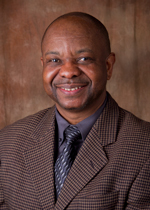by Monaih Sam | Jul 25, 2013 | Uncategorized
The Institute for Sustainable Practice (ISP) at Lipscomb University offers a variety of degrees for students in all phases of life, including an undergraduate Major in Environmental and Sustainable Science (ESS). Environmental and Sustainable Science covers interests in a diverse array of fields, ranging from Ecology, Wildlife Biology and Conservation, Environmental Law and Policy, Environmental Analysis, Environmental Management, Organic Food Production and many more personalized concentrations. Dr. James English, Academic Director for the ISP, said the program is more involved than just taking Science courses. “A few years ago, students in most of these fields would just take a concentration of biology courses and chemistry courses. Then, maybe 10 years ago, many schools developed a program in Environmental Science,” English said. “The Institute for Sustainable Practice has a program that includes all those rather traditional fields, but also includes very applied areas of sustainability.” The programs offered by the ISP aren’t confined to just students interested in Chemistry or Biology. All students in all majors are encouraged to find out what the program has to offer and find a specialized career. “You want to go to Law school, but specifically you want to go for Environmental Law – our program encompasses that,” English said. “I have students who want to be farmers, environmental consultants. I have students who want to be entrepreneurs and start their own ‘green business.’ “And, of course, a great many of our students are studying ecology, conservation and wildlife biology. The thing all these students have in common is they are learning how the environment works, and doing something substantial to lessen our impact on...
by Janice Ng | Mar 7, 2013 | News Slider
Lipscomb faculty and students are not shy about stating their opinions when it comes to the long-standing debate over faith and science. For the most part, they don’t say one side prevails over the other and agree that faith in God actually aids in the understanding of science. David McNutt, a biology major from Nashville, Tenn., is one student who believes there is a way to advocate both faith and science at the same time. “I think that there is an equal playing field,” McNutt said. “There are a lot of people who think one has to work without the other. I think that Christians can believe that science is ever-changing. A lot of things point towards evolution, but Christians can believe that there is a natural process that takes place, at the same time believing that God is completely in control.” Shivali Kanal, a biology major from Franklin, Tenn., draws a line between the two topics, describing faith as a way of life, and science as something current and ever-changing. “I think faith and science can sometimes get in the way of each other,” Kanal said. “For example, embryonic stem cell research is a huge issue today, and many people believe it’s not morally O.K. to kill embryos to get the embryonic stem cells and develop them into cells that can treat diseases such as cancer and heart diseases. “That’s a huge controversy. We could either save lives of diseased people right now, or save future lives. It has a lot of moral aspects to it, so that gets in the way.” Paul Justice, a physics major from Bowling Green,...

by Emily Snell | Sep 5, 2012 | Uncategorized
After leaving Zimbabwe, a small country in Southern Africa, and teaching at two other Church of Christ universities for several years, Dr. Florah Mhlanga came to Lipscomb in August 2011 as a biology professor. Mhlanga, one of nine children, earned her bachelor’s degree from the University of Zimbabwe before obtaining her master’s and doctorate degrees at Michigan State University. She has two children, Carl, 15, and Craig, 10, and her husband, Fortune, is director of Lipscomb’s School of Computing and Informatics. Mhlanga said she came to the United States from Zimbabwe with her husband and their two sons in 2002 because the political and economic climate in Zimbabwe was beginning to “deteriorate.” “We never thought we would leave Zimbabwe,” she said, noting that she was a professor and chair of her department at the University of Zimbabwe. An opportunity arose at that time, Mhlanga said, for them to teach at Faulkner University in Montgomery, Ala., and she said she believes it was a blessing from God. “We thought it was a God-sent opportunity to shield us from some of the problems that really we were experiencing — the political and economic problems in Zimbabwe,” she explained. “We thought it was really God’s call or a blessing, in a way, from God that he opened this avenue for us to leave Zimbabwe and to go to Alabama to work there.” Mhlanga said the condition of the political and economic system in Zimbabwe gave her concern for her children and their ability to have opportunities. “It was going to be very difficult to educate them, to find a good educational system...

